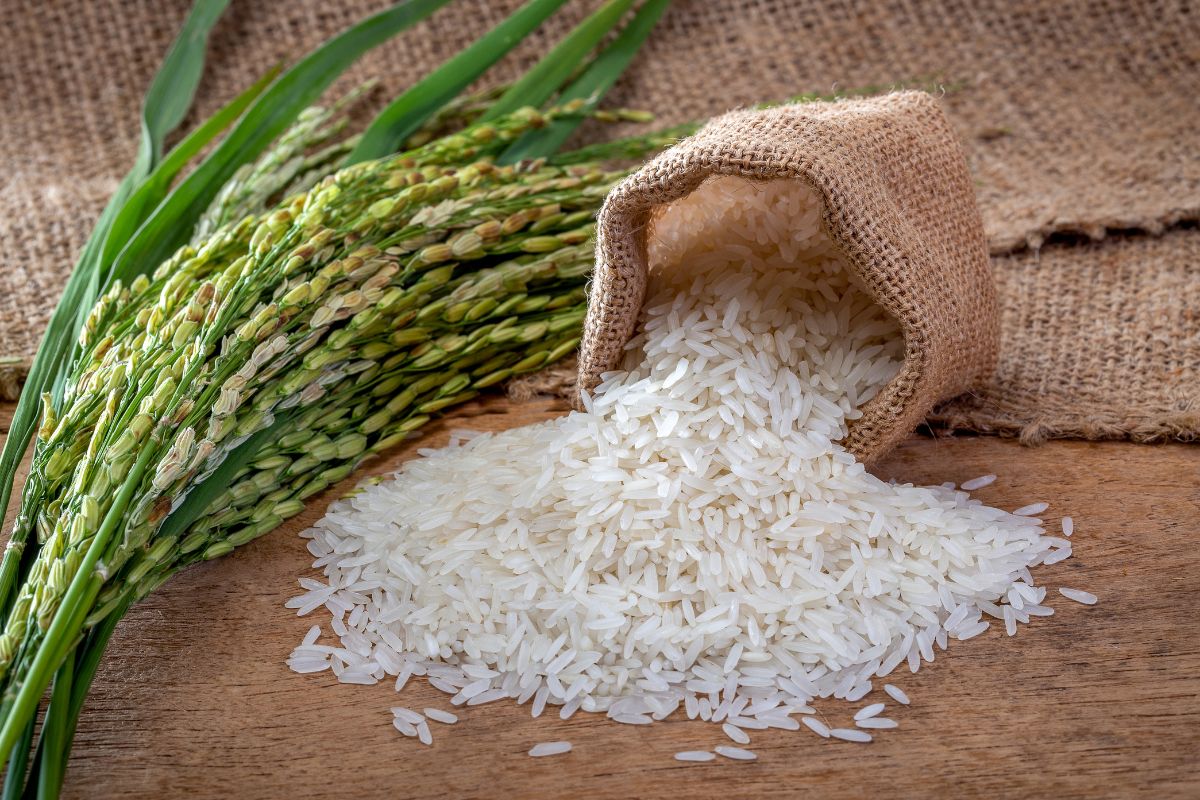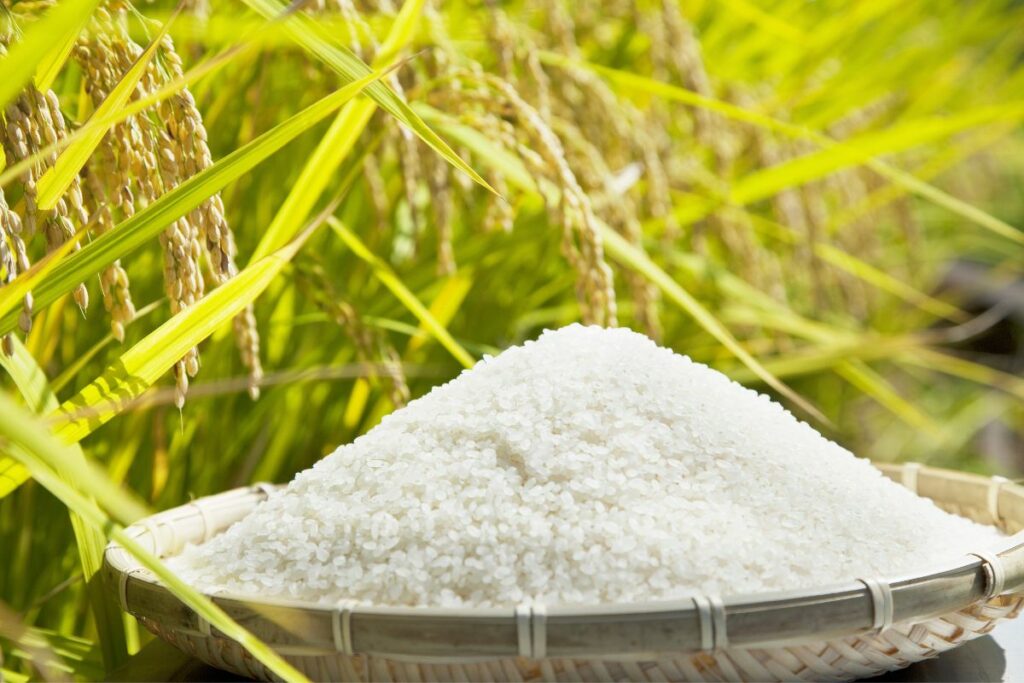All of us want to stay within a healthy and balanced diet, so when it comes to our daily meals, we would all like to know if we’re eating too much or too little of a specific food.
Rice is one of the dishes that is extremely common and usually is a side, but it can be the main staple of a dish. As a result, rice could be a very usual part of our plates. But is it okay to eat it everyday?
Generally speaking, rice is a very healthy grain – but you should avoid eating it everyday. As with anything, too much of it could be detrimental to a healthy diet.
Of course though, there’s a lot more to know than this, so we’ve written this handy guide which aims to explain everything you need to know about eating rice on a daily basis.
Looking to learn more about this? Then read on and find out more!
Can I Eat Rice Everyday?
So, as we said – rice does have plenty of health benefits, but as with any other food type, you should avoid eating it everyday. As all rice can contain arsenic, too much of this in your system by eating it daily can lead to increased health risks.
These include some cancers, heart disease and uncomfortable stomach problems like constipation and diarrhea. As rice absorbs more arsenic from soil than any other grain, you might want to replace it with some other grain type.
This could include barley, quinoa or buckwheat. Try to swap and change your grains on a daily basis to avoid significant trouble.
What Is Rice Anyway?
So it’s a good idea that we explain what rice is in general so we can better understand how best to incorporate it into our diets. Rice is the seed of a cereal grass and it is one of the most widely enjoyed food types in the world.
With more than half of the world’s population enjoying rice, it’s clear that it is one of the most important dietary carbohydrates that we could enjoy. In fact, in Asian countries – it’s the central focal point of many of their dishes.
There are so many types of rice but typically you will find brown and white and long grain or short grain. White rice is rice that has had its outer bran removed.
As a result of this, it can last longer on shelves or at home, but it compromises on its nutrients and fiber quality – and also compromises on its taste by becoming much more bland than brown rice.
Is Eating Rice Healthy?
So, while you should avoid eating rice every single day, you should still eat rice as part of a healthy and balanced diet. Moreover, you should try to select brown or wholegrain rice over white rice whenever possible.
The general health qualities of rice include a boost to your:
- Fiber
- Protein
- Carbohydrates
- Magnesium
- Phosphorus
- Essential fats
Along with these, when consuming rice as part of a healthy and balanced diet, you could see some of the following benefits:
1. Weight Management
These days, society is very focused on trying to maintain a healthy weight. Not only is this a direct result of our sedentary lifestyle, but we now understand more than we ever did about the importance of remaining physically healthy.
So, if you eat rice healthily, you could benefit from a reduction in your blood glucose levels and your fasting insulin levels.
As a result of this, your energy levels should begin to stabilize and you should find it easier to control your food cravings.
Overall, you could find it much more simple to manage your eating habits and your metabolism should substantially improve – meaning you should find the pounds start to melt off, when contributing to regular exercise.
2. Protection Against Chronic Diseases
Opting for brown rice means you keep the bran layer intact and this keeps the protective layer of flavonoids which help to fight against chronic diseases.
There have been plenty of studies looking into this which suggest the same thing.
Because of this, you could find that consuming brown rice as part of a healthy and balanced diet and exercise program could keep you healthy against diseases, especially heart related chronic diseases.
3. Restoration Of Glycogen After Exercise
Many athletes choose to eat white rice as part of their diet because the refined carbohydrates allow their muscles to repair much quicker due to the restoration of their muscle glycogen.
4. Easy On The Tummy
For people who live with conditions like Crohn’s disease, rice can be a great option because it’s very easy on the digestive system.
Not only this, but if you’ve been suffering from a stomach bug – many experts suggest you eat rice to refuel your body.
It’s also generally accepted that people who frequently have heartburn will not get the same flare ups with rice as they do with other carbohydrates in their diet.
5. The Grain Is Gluten Free
In a similar point as the previous one, as rice is gluten free – people who live with Coeliac disease can happily enjoy rice as part of their diet without any reactions.
This makes it a valuable choice for their diets as they can still remain healthy and eat freely.
Is Rice Okay For Everybody?

This will largely depend on your own health and dietary requirements, along with whatever the dish is that you are going to include rice with. However, there are some basic guidelines you should consider.
For example, most experts agree that rice should not be given to children under the age of five due to the possible arsenic inclusion. This is why rice milk will usually have a disclaimer on the bottle.
It’s also important to recognize that some rice is processed in such a way that it loses a lot of its benefits, such as micro-rice which is no longer as healthy as it once was after it is cooked.
What Is The Best Way To Cook Rice?
It’s generally accepted that boiling rice is your best choice when it comes to getting the maximum benefits out of it.
There are many other ways such as frying it – but of course, this is not the best option for you.
How Often Should I Eat Rice?
When kept as part of a healthy and balanced diet, you can enjoy rice around four times a week, but this is not a hard and fast rule at all.
Some people will need to eat rice more often due to their dietary requirements, and some people will be the opposite.
It’s a good idea to write a food diary plan and include rice on a day on, day off basis. On other days, use other grains.
The Bottom Line
You should avoid eating rice everyday, but there’s nothing wrong with it being a predominant factor in your overall healthy and balanced diet. We hope we’ve helped clear up any confusion!








